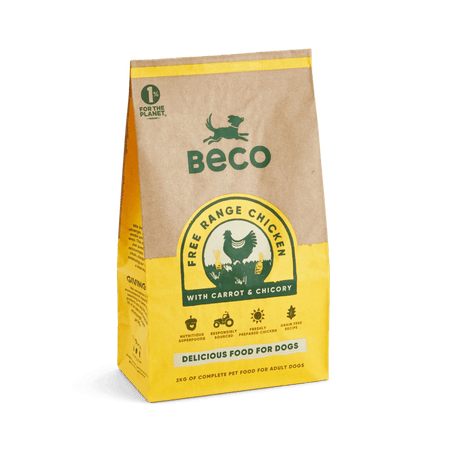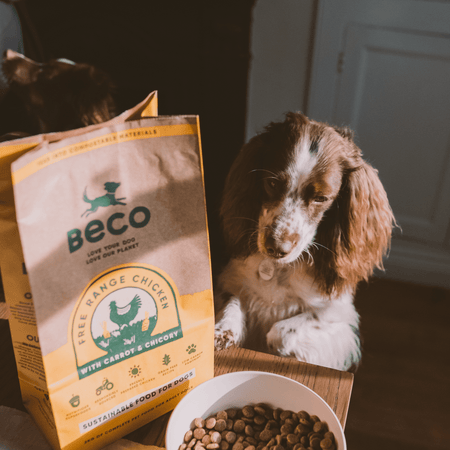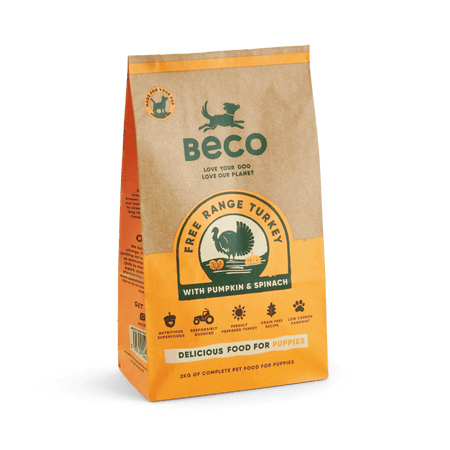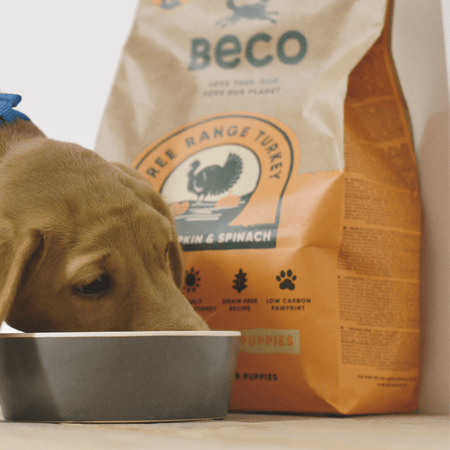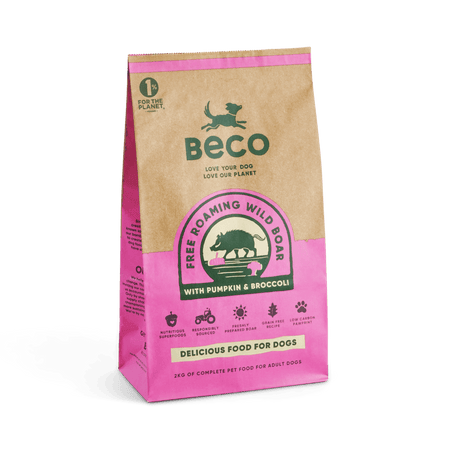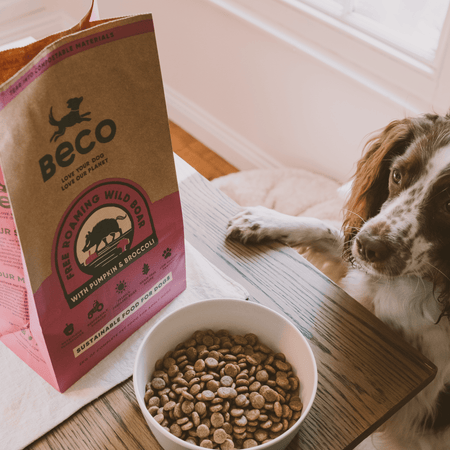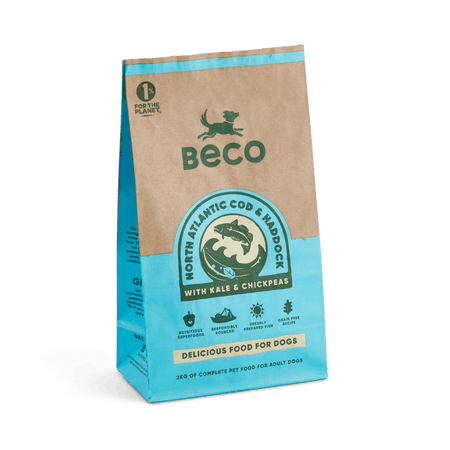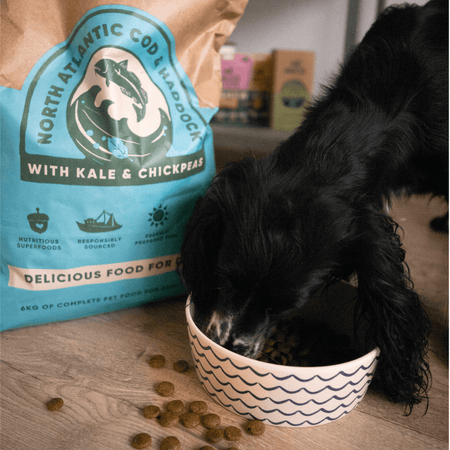Diets have long been a bone of contention for humans in a bid to live longer, healthier lives. It is quite interesting to note that the concern on what is the “best” diet shift to our furry friends which can be a good thing or… sometimes do more harm to our pets than good.
Grain-free puppy food or non-grain-free puppy food, you are probably an owner who has been left confused and wondering which is the most suitable option as there is so much conflicting information out there.
After reading this you will hopefully be equipped with the knowledge to make an informed and objective decision on what your furry pup should be consuming…
What actually is grain-free?
It might come as a surprise that some owners who purchase grain-free food for their puppies do not know why they did it in the first place. This shows how much of a buzzword ‘grain-free’ has become and some parents possibly went the grain-free route driven by a marketing trend. But it is more than just a trend, so we should first unpick what is grain-free and what are some of the misconceptions?
When a dog is on a grain-free diet, this means that the food he or she consumes does not contain grains such as corn, wheat, barley, etc. Good carbohydrate sources such as pumpkin, lentils and potatoes are used instead. As we established in our Ultimate Guide to Grain-Free Dog Food, dog food manufacturers sometimes use grains as fillers to ‘beef’ up their food. However, this is not always necessary, since there are other sources such as potatoes and carrots that can achieve the same purpose, often with better nutritional advantages.

Another term that is associated with grain-free puppy food is ‘Gluten Free’. These two terms are completely different and cannot be used interchangeably. Gluten is a protein found in grains such as wheat or rye.
If a dog goes on a grain-free diet, then it automatically goes on a gluten-free diet because wheat, barley, rye... are grains that have been eliminated. However, if a dog goes on a gluten-free diet, it is not on a grain-free diet. Your dog could be off wheat and barley but it could still be consuming grains such as rice.
We recommend looking at grain-free food in a wholesome manner. The source and composition of ingredients used to prepare grain-free food should be looked into. If the meat used for preparation was not fresh then the end product is unlikely to be high-quality as perceived. The cooking method should also be interrogated because some recipes use meat meal that has been cooked at temperatures of 250℃ or even 400℃. The grain-free puppy food we use does not go above 240℃ and this prevents nutrients from diminishing.
What do puppies need to thrive?
Let’s look at the essential nutrients puppies or any dog for that matter needs to survive. Once you understand this, it will help paint a picture on what type of food may be best for your puppy, and why it’s not always as simple as grain or no grain.
Water - It goes without saying that life cannot exist without water. Even puppies that consume wet food should still have plenty of water for optimal health.
Protein - Protein provides dogs with amino acids critical to life. Dogs cannot produce this on their own therefore rely on their diet. Dogs are carnivorous omnivores therefore protein should mainly come from meat.
Fats - Fats contain essential Omega 3 Fatty Acids which improve brain health, protect the internal organs and improve nervous system capability. Puppies especially need healthy doses of fats in their diets.
Vitamins - These are also sourced from the diet as dogs cannot produce them on their own. Vitamins boost the immune system and serve as antioxidants.
Minerals - Minerals such as calcium are important for puppies to develop strong and healthy bones.
Carbohydrates (carbs) - Domestic dogs have evolved to digest carbohydrates and even utilize some of their nutrients but it is not an essential nutrient. Fibre is however important and can be sourced from vegetables of the right sort of carbohydrate.
With those basics covered, let’s dive into the specifics of what your pup needs. This again depends because every puppy is different in regard to metabolism, digestive system, activity level and intolerances. A good rule of thumb is ensuring your puppy is fed nutrient-dense food that promotes healthy growth of bones, muscles, ligaments and organs.
The importance of a balanced grain free puppy diet
A balanced diet that is easy to digest. Most of the puppy’s energy should go to exploration and play, not digestion. Balance of nutrients is especially important to achieve easy digestion and overall health for puppies, and you should practice caution before purchasing puppy food as this is something you need to get right. Some grain-free manufacturers could have imbalanced the carbs. Excess carbs lead to the flourishing of the wrong gut microbiome, obesity and reduced energy levels. This is why it is law to list everything that goes into the food. On the analytical constituents however, you will never see a carbohydrate %, to work out how much of the food is carbohydrate, you have to add up all the % 's in the ac, whatever number is left, to take the total up to 100%, is the carbohydrate %.
Look at bioavailable and single source protein for your puppy
Puppies need more protein to feed developing muscles. Some grain-free foods however have an excess of protein which could potentially harm the puppy in the long run. You should also try to avoid mixed protein sources as this could trigger intolerances or allergies, we have covered this topic on our blog about hypoallergenic dog food. Our Free Range Turkey Puppy Food contains the doses of each nutrient to support the development of your puppy, without having to worry about allergies or intolerances from multiple protein sources. We are also very keen on the bioavailability and digestibility of the protein source, to ensure your puppy can absorb the protein at the rate required for them to function efficiently. Novel protein sources such as wild boar or haddock are used to ensure your puppy does not develop any intolerances and has good bioavailability.
Hopefully this clears up the fluff and if there is one takeaway, whichever diet you choose for your puppy ensure it is balanced. A 2018 study that tested the effectiveness of a grain-free diet, kibble and a raw diet confirmed that all diets are digestible and result in good stool. Dogs on the raw and grain-free diet however had less blood triglyceride even when the fat content was increased. This shows a grain-free diet might be more optimal for health.












